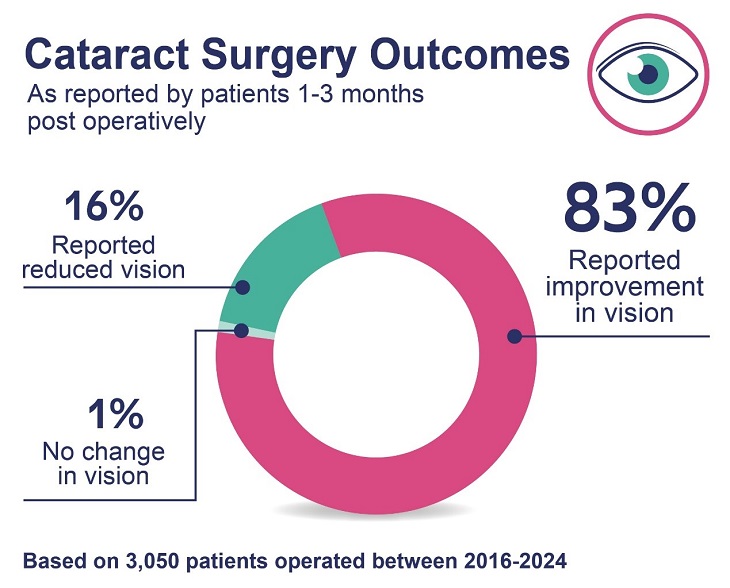Cataract Surgery Outcomes, PROM's
Cataract– the clouding of the natural lens of the eye – is a leading cause of blindness worldwide. The only treatment for cataract is the removal and replacement of the cloudy lens through cataract surgery.
Since 2016, Sheba Medical Center has been systematically collecting data from patients who underwent cataract surgery at the hospital. Patients were asked to complete two questionnaires, one before the surgery and one after: the PROMIS GLOBAL 10 questionnaire, which provides general insights into physical and mental functioning, and the CATQUEST-9SF questionnaire, which reflects information regarding the visual quality and functionality of patients' eyesight.
The data was statistically processed using the MCID (Minimal Clinically Important Difference) method, which identifies the smallest quantitative change that can be considered clinically significant.
Presented here are the results of the visual state as assessed by the CATQUEST-9SF questionnaire, conducted 1-3 months after surgery. This time frame allows for the observation of the surgery's final outcome.
It is important to note that many patients suffer from additional underlying eye conditions that may limit visual potential. Hence, despite a technically successful surgery, patients may not experience improved vision due to other issues in the operated eye.









